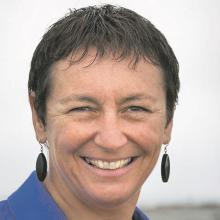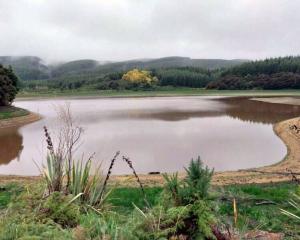The Otago Regional Council has extended the cutoff for submissions to the Clutha River minimum flow process, saying the amount of public input ''hasn't been overwhelming'' so far.

The council began the consultation process in November and 10 public sessions were held between Queenstown and Balclutha.
It said last week about 80 people attended the sessions and another 18 feedback forms had been received.
The closing date for submissions had been scheduled for tomorrow, but council planning director Tanya Winter said there had been a number of requests from the public for an extension and a new date had been set, February 19.
''An extension isn't going to impact our project timeframes or delay any deliverables around the plan change, so it made sense to leave that window of opportunity open a little bit longer for people to provide their feedback.''
Springvale Downs farmer Gary Kelliher, who earlier this week raised concerns about the speed of the process, said he would still prefer the minimum flow process was delayed until other catchments had minimum flows set to allow the Clutha to be used as a fallback option.
The council indicated that the second phase of the Clutha River process would take place in spring, before the third and final phase began in autumn next year.
Senior policy analyst Tom De Pelsemaeker said development of minimum flows for other tributary catchments, such as the Lindis, Cardrona, Manuherikia and Arrow catchments, was well under way and it was ''anticipated that these minimum flow plan changes will be completed well before decisions are made on minimum flows and allocation limits for the Clutha''.
But Mr Kelliher doubted this would be the case and pointed to the Lindis River minimum flow process, which will now be settled in an Environment Court hearing following a year of unsuccessful mediation talks between affected parties.
If other rivers were also delayed, then the Clutha process would progress to the advanced stages and it would be ''virtually impossible'' to change the allocation limit to accommodate the outcomes of the other rivers, he said.
He raised his concerns with Central Otago Mayor Tim Cadogan, who said he had not yet discussed the issue with the other councillors but ''it probably lies with ORC to decide their order of priorities''.
Mr Cadogan urged the community to make the most of the extension date and make a submission.
''The Clutha River affects an awfully large portion of people in Central Otago, particularly when you consider, at the very least, it flows through our three largest towns.
''It's very important the community educates itself from an early stage in order to make an informed contribution to the discussion and that people do look at what has been asked by the ORC.
''It's good to see it extended to February 19 and people should make the most of that opportunity.''
- By Rebecca Nadge












